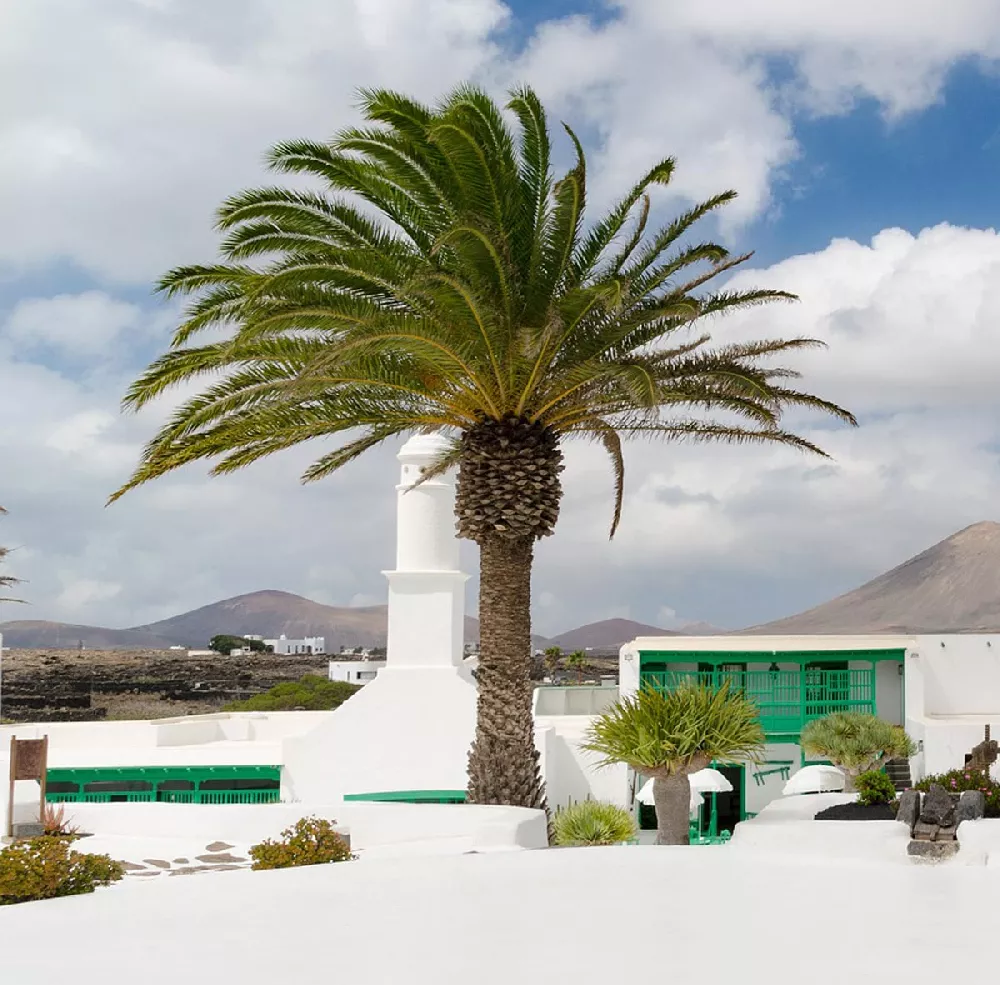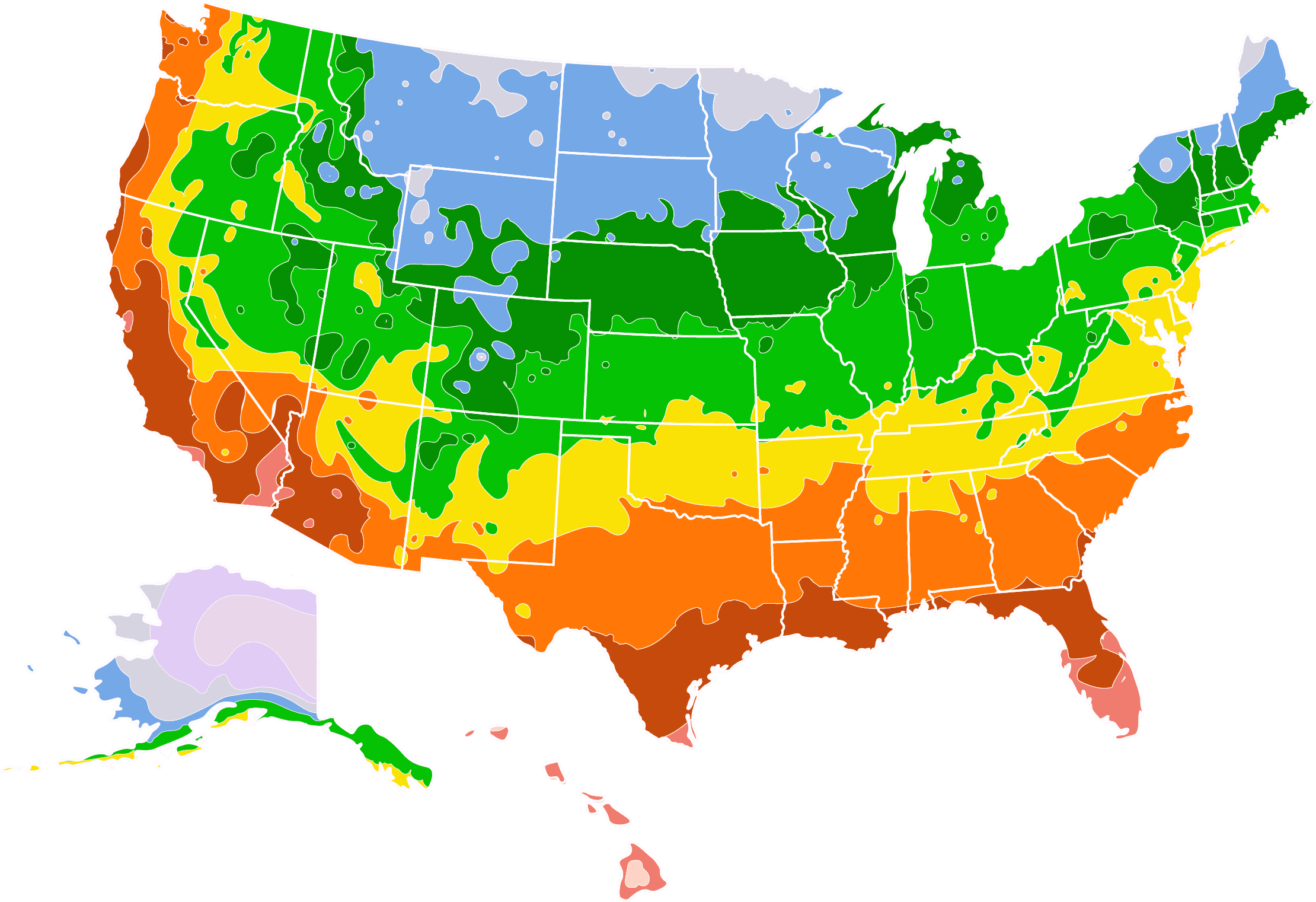- Home >
- Palm Trees >
- Canary Island Date Palm Tree
Canary Island Date Palm Tree for Sale - Buying & Growing Guide
Canary Island date palm trees, Phoenix canariensis, are handsome palms with arching fronds and attractive textured bark. Leaves can be up to 15 feet long, and the tree itself can grow as tall as 60 feet. These easy-to-grow trees are tropical, thriving in southern parts of the U.S. in USDA hardiness zones 9 to 11. But those who like its appealing form will be pleased to know that it also grows well indoors in containers, where it remains a manageable, compact height. Here are a few other reasons to like the Canary Island date palm:
- Once established, these trees are drought-tolerant and do not need much supplemental watering.
- Yellow flowers are succeeded by eye-catching clusters of orange or yellow fruits.
- Few pests or diseases bother this easygoing tree.
Enter your zip code to find nearby stores that may carry this plant.
Plant Care
Sunlight

The Canary Island date palm can tolerate some light shade, but grows best in full sun, eight or more hours a day.
Watering
Water young trees regularly; once mature, they only need supplemental water in drought conditions.
Fertilizing

Fertilize three times in the growing season with a product formulated for palms, such as an 8-2-12 formula.
Planting and Care
Planting instructions
Choose a sunny, open spot for your Canary Island date palm sapling. Unpot your tree and tease out any encircling roots, which can girdle the tree and eventually kill it. Dig a hole that’s roughly 1 foot deeper than the root ball and twice as wide. Add a mix of fertile soil and well-rotted organic compost or manure to the bottom of the hole. Water the hole well, allowing water to seep into the ground. Place your sapling in the hole so that the top of the root ball is level with the ground. Fill in around it with good-quality soil, tamping it down as you go to eliminate air pockets. Water again thoroughly, and mulch with an organic product, such as bark or cedar chips.
Watering and nutrients
For several weeks after planting, water every two or three days. Then cut back to once a week, giving the tree about 1 inch for the rest of its first year. After that, it will only need water when you are experiencing drought conditions. Fertilize your tree when newly planted, and then every four months during the growing season. Use a slow-release product that is formulated for palm trees.
Pollination
Canary Island date palms are pollinated in the spring by a small beetle, Neoderelomus piriformis. The beetles are attracted to the small yellow flowers and transfer the pollen from male to female trees. The flowers are succeeded by tiny dates, less than an inch long, that grow in clusters at the top of the tree. Although edible, their size and the difficulty in harvesting them make them less appealing than the fruit of other date palms, and they are rarely used as food.
Pruning
These palm trees need little pruning. As new fronds develop, old ones lower on the trunk should slowly dry out and drop. If not, you can prune out these older branches if you wish, cutting them back to the trunk. Clean up any dropped branches regularly to discourage insects and small animals from nesting in them.
Pests and diseases
Canary Island date palms have a few insect pests that prey on them, including scale insects, the palmetto weevil, and the palm leaf skeletonizer. Diseases that they are susceptible to include phytophthora bud rot, lethal yellowing, and magnesium deficiency, which can be dealt with by using a fertilizer that is high in magnesium. Potassium deficiency may also plague these trees. These deficiencies will cause the leaves to start to die at the tips and break off — a light dressing of fertilizer may help restore your tree.
Achieving maximum results
If you love the look of these date palm trees but live north of zone 9, you’re in luck: Canary Island date palms adapt well to life in a container. Choose one that is about 1.5 times the size of the root ball so that the roots have room to grow. Choose a good quality, fertile potting mix to plant your tree in, and water thoroughly, especially if your home is dry. Siting your tree near a window that gets light for much of the day will help it acclimate and thrive. These trees are slow-growing, so you shouldn’t need to repot it more than every few years.
FAQs
WIll a Canary Island date palm survive a frost?
Regular hard frosts will kill your date palm, but an occasional light frost shouldn't bother it. Date palms have survived in weather as cold as 18 degrees Fahrenheit. If a hard frost is predicted in your area and your tree is fairly small, you can help it survive by draping the canopy in a blanket overnight.
How big will my Canary Island date palm get?
That depends. A container-grown plant, whose roots are restricted by the size of the container, may not get taller than 5 or 6 feet. Meanwhile an outdoor tree growing in a favorable spot with great sun and good soil may top out at 60 feet, with a spread of 40 feet. Keep in mind, however, that these trees are very slow-growing, so your tree may take up to 20 years to reach a height of 10 feet.
What's the biggest concern when growing Canary Island date palms?
Probably the biggest challenge you will have is micronutrient deficiencies, especially potassium and magnesium. Watch your tree carefully for yellowing fronds. Unless you're experiencing a drought, which could also cause this symptom, you are probably dealing with a deficiency of one of these elements. Fortunately, deficiencies are easily remedied by applying a micronutrient-heavy fertilizer. If that doesn't help, consult an arborist.
Compare Similar Products
You can't add more Product Name - Product size to the cart.
OK










